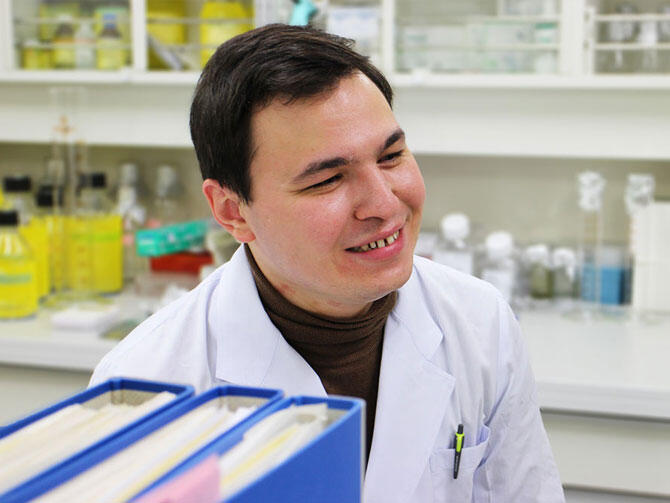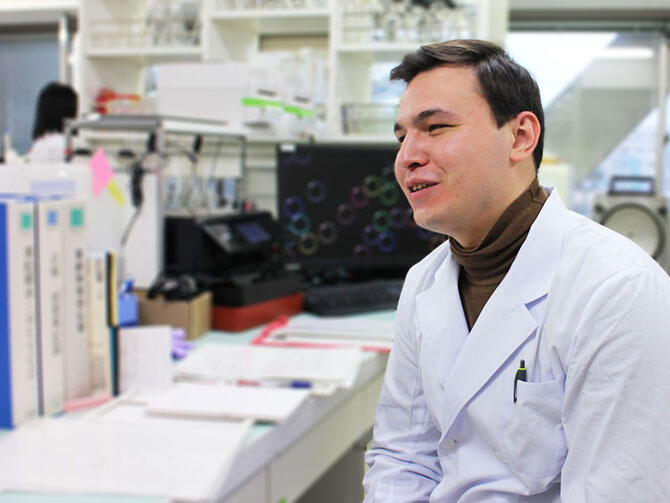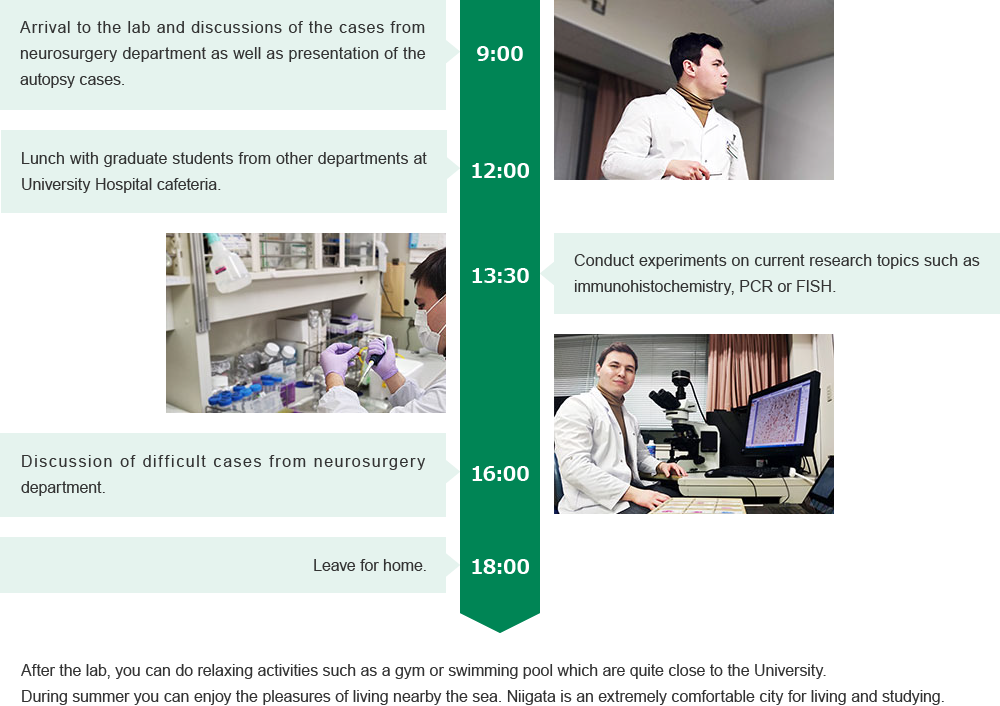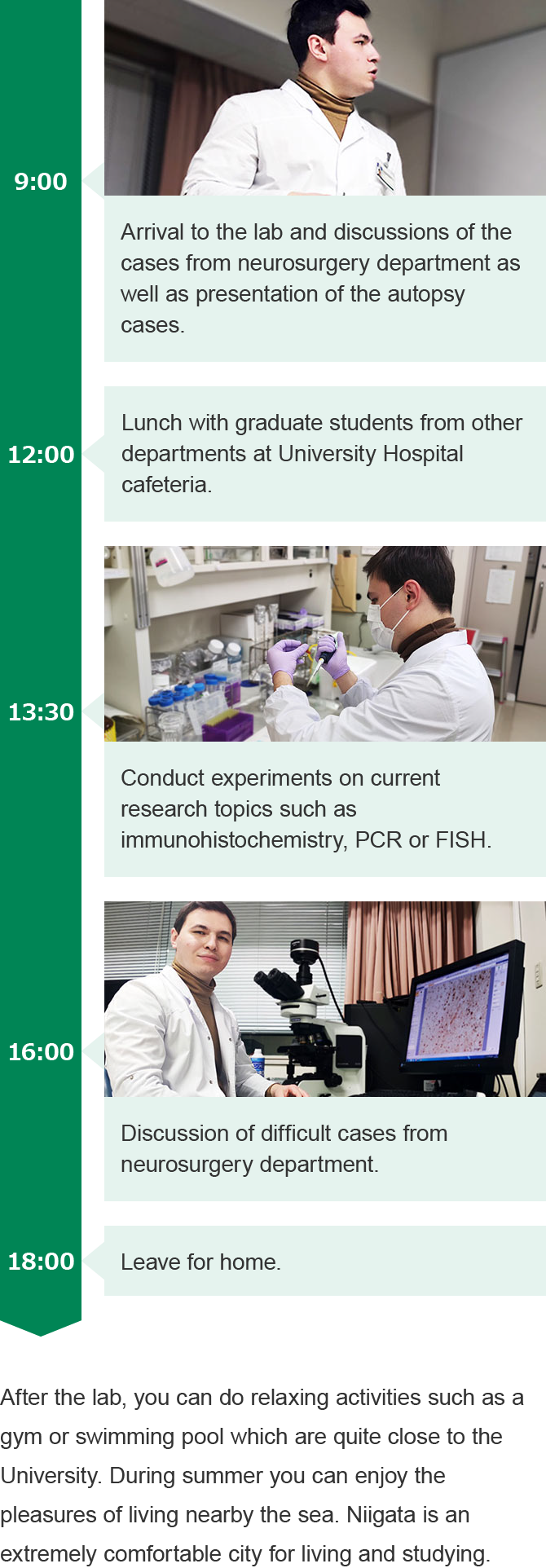
Ramil Gabdulkhaev
PhD in Biological Functions and Medical Control course
Interview

Tell us about the research you are currently doing at BRI.
Research in our lab is concentrated around the pathology of the diseases of the human nervous system. The area is quite broad and includes a study of neurodegenerative diseases, neoplastic processes, various malformations, and autoimmune diseases, to name a few. My current research interest is around neuropathology of REM sleep behavior disorder (or RBD). Briefly, this disease manifests by peculiar behavior during REM-stage of the sleep which includes acting out of unpleasant, vivid dreams (violent and aggressive in nature, like being chased or attacked) and loss of muscle atonia which results in violent arms and legs movements (punching, kicking) which can cause trauma to a patient or his/her bed partner. The interesting point about this disease is that it precedes the development of the clinical symptoms of so-called synucleinopathies by 10 years or more. Synucleinopathies are a group of neurodegenerative diseases which are characterized by an accumulation of alpha-synuclein in vulnerable populations of neurons and include diseases such as Parkinson's disease (PD), multiple system atrophy (MSA) and dementia with Lewy bodies (DLB). Since RBD is a strong predictor of progression to synucleinopathies, the study of this pathology will shed a light on how REM-stage of the sleep is controlled and how certain neuronal populations become vulnerable to the accumulation of alpha-synuclein years before the development of clinical symptoms of PD, MSA or DLB.

Why did you decide to come to BRI?
Neurology and neurosurgery were and are the most interesting topics for me. And during my years in medical school, I tried to engage in these fields as much as possible. Approaching closer to the graduation from my alma mater, I wanted to stay both in basic research and at the same time to keep my hand on the clinical and practical side of things. Fortunately, Kazan State Medical University (KSMU), where I got my MD degree, has ties with BRI, so I applied for a scholarship and got an opportunity to continue my education at Niigata University. BRI has an excellent platform for scientific investigation in the neurological and neurosurgical domains and provides a unique opportunity to perform cutting edge basic and clinical research as well as guidance from leading experts in the field. Moreover, Japan is well known for its high-quality research standards and studying at BRI will certainly teach you how to perform research and provide results which will influence the field. And last, but not the least, I was always fascinated by Japan and its culture, and studying at BRI makes possible to get to know Japan much closer as well as to learn a new language and broaden my horizons.
What would you like to say to people who are thinking about graduate programs at BRI?
If you are thinking about the graduate program at BRI, I would certainly suggest you apply for it without any hesitation. It is a unique experience in an excellent institution with a rich history and a wide range of basic and clinical research topics (or combination of both). The research environment at BRI is extremely inspiring and productive. Apart from BRI, Niigata prefecture is an amazing place. Nature here is captivating and there are a lot of places for sightseeing. And particular comment for the lovers of snowboarding and skiing: Niigata prefecture has more than 50 ski resorts, so if you like to snowboard or ski around gorgeous mountains and picturesque landscapes - this is a place to go.







